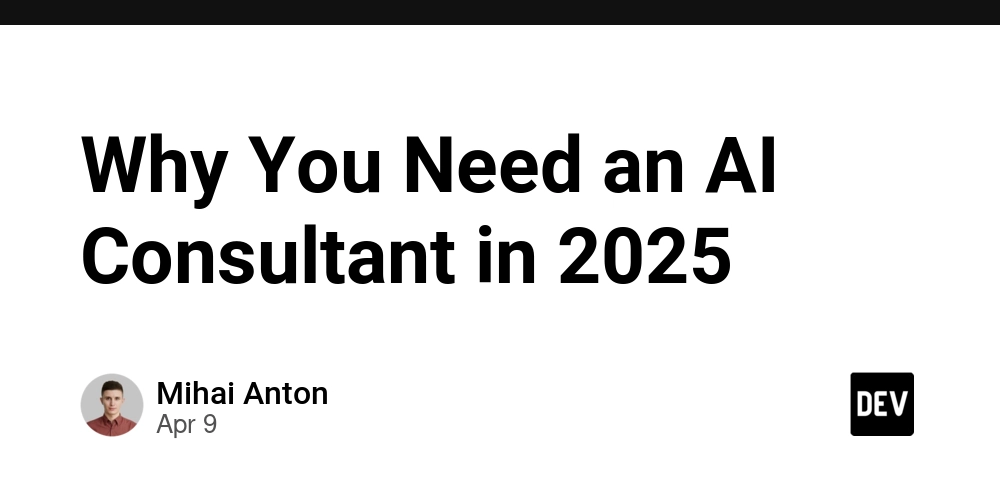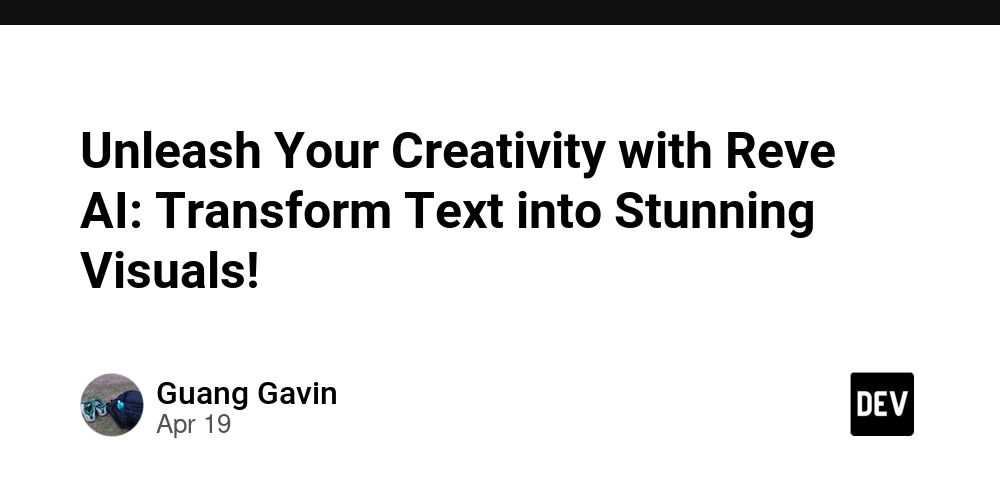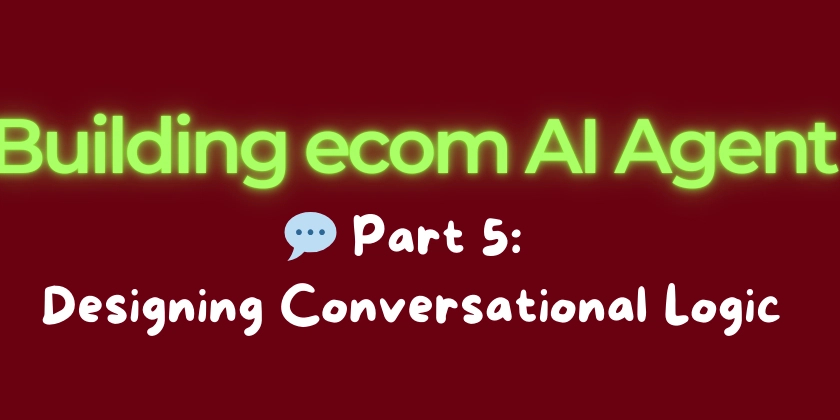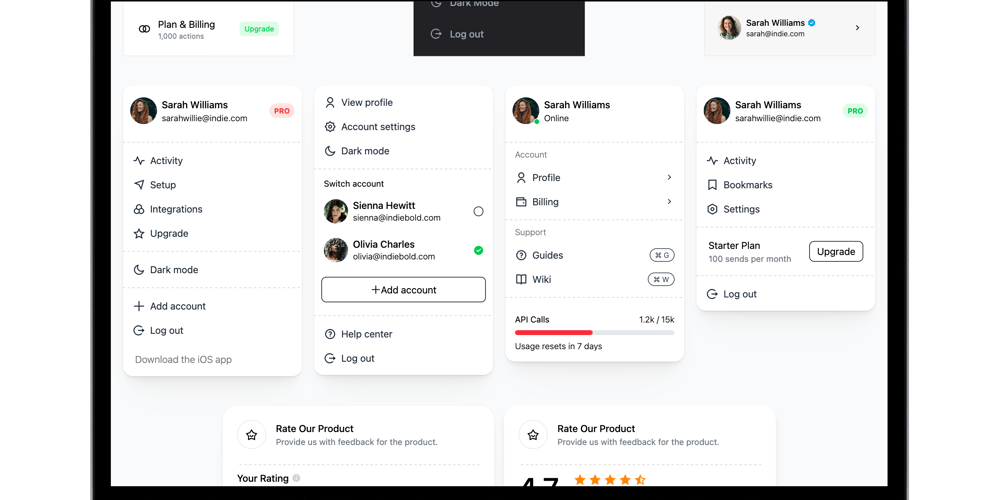Why You Need an AI Consultant in 2025
Why You Need an AI Consultant in 2025 As the AI wave keeps accelerating, we’re witnessing a shift in how companies build and scale their software systems. What was once reserved for a handful of tech giants is now within reach for small and medium enterprises, and the possibilities stretch well beyond the commonly praised Large Language Models we see in the media. There’s still a big gap, though: building a truly impactful AI product—from data engineering to deployment—requires rigorous fundamentals that many teams haven’t yet mastered. If you plan to harness AI responsibly and efficiently, bringing in an AI consultant is no longer a luxury. Here’s why. 1. AI Has Moved Beyond the Hype We’re all familiar with the fuss around ChatGPT or generative art, but these solutions are only a fraction of what AI can do. Companies see the acronym “AI” and assume it’s all about text or images. In reality, there are countless other domains—predictive analytics, anomaly detection, self-learning agents, recommendation engines, advanced computer vision systems, and more. A competent consultant will help you identify which form of AI best aligns with your goals, rather than forcing the same solution into every scenario. 2. Building the Right Foundation Now Pays Off Later One of the biggest mistakes we see is layering fancy AI models on top of a weak data infrastructure. This might look impressive in the short term but can break the moment you try to scale. At AI Flow, we’ve seen projects where a client’s pipeline was never designed to handle large data spikes, and swapping in a more powerful AI model didn’t solve the underlying issues. With the right consultant from the start, you’ll establish a robust pipeline, design flexible APIs, and ensure your system can integrate with the best tools out there—like Google’s Vertex AI or AWS Sagemaker—without needing to rewrite everything when your user base grows. 3. Regulations Are Becoming a Real Factor If you’ve followed the EU AI Act or other emerging data regulations, you know that AI is no longer the “Wild West” it used to be. Companies that neglect compliance measures often face steep penalties or forced rebuilds. A consultant who truly understands the fundamentals—beyond just wrapping an off-the-shelf model—knows how to embed responsible data practices from day one. Building with strong ethical and regulatory principles up front spares you the headache of retrofitting your entire product weeks before a crucial compliance deadline. 4. Scarcity of True AI Experts As more developers label themselves “AI engineers” after integrating off-the-shelf models, it has become harder to separate genuine expertise from basic API calls. There’s a critical difference between a professional who has worked deeply on optimizing AI models and pipelines—and someone who merely taps into an external service. While there’s nothing wrong with using existing platforms, you need to ensure your long-term roadmap stays robust and adaptable. An experienced consultant will help you maintain this balance without being sidetracked by hype. 5. Stay Ahead of the Competition AI-driven capabilities, whether it’s better analytics or new user-facing features, will eventually become the norm. By getting there faster and with the right architecture, you position yourself to deliver better experiences than your competitors. We’ve seen companies capture a market niche simply by building AI-driven recommendation systems that tailor interactions to each user. That initial investment often pays for itself as these systems gradually learn from and adapt to user behavior, driving revenue growth and stronger customer loyalty. 6. Real-World Examples In the past couple of years, we’ve watched AI consultants step in and add value quickly: Scaling a growing startup’s infrastructure: Making sure a platform could handle rapid increases in user traffic without sacrificing speed or reliability. Improving AI-driven content generation: Reducing training times and operational overhead so the client’s creative workflows could run more smoothly. Refining data pipelines: Designing distributed pipelines that ingest, clean, and organize data, enabling the AI model to make better, more accurate predictions. In each scenario, spending a little time with an experienced consultant saved the client months of costly trial-and-error. Conclusion As we move further into 2025, AI is evolving into an integral part of every modern business strategy, but it’s far from a one-size-fits-all approach. A credible consultant helps you refine your data infrastructure, factor in new regulations, and select the most effective AI methods for your unique challenges—without relying solely on surface-level integrations. If you’re curious to learn more about integrating advanced machine learning in a way that’s both scalable and responsible, you can book a

Why You Need an AI Consultant in 2025
As the AI wave keeps accelerating, we’re witnessing a shift in how companies build and scale their software systems. What was once reserved for a handful of tech giants is now within reach for small and medium enterprises, and the possibilities stretch well beyond the commonly praised Large Language Models we see in the media. There’s still a big gap, though: building a truly impactful AI product—from data engineering to deployment—requires rigorous fundamentals that many teams haven’t yet mastered. If you plan to harness AI responsibly and efficiently, bringing in an AI consultant is no longer a luxury. Here’s why.
1. AI Has Moved Beyond the Hype
We’re all familiar with the fuss around ChatGPT or generative art, but these solutions are only a fraction of what AI can do. Companies see the acronym “AI” and assume it’s all about text or images. In reality, there are countless other domains—predictive analytics, anomaly detection, self-learning agents, recommendation engines, advanced computer vision systems, and more. A competent consultant will help you identify which form of AI best aligns with your goals, rather than forcing the same solution into every scenario.
2. Building the Right Foundation Now Pays Off Later
One of the biggest mistakes we see is layering fancy AI models on top of a weak data infrastructure. This might look impressive in the short term but can break the moment you try to scale. At AI Flow, we’ve seen projects where a client’s pipeline was never designed to handle large data spikes, and swapping in a more powerful AI model didn’t solve the underlying issues. With the right consultant from the start, you’ll establish a robust pipeline, design flexible APIs, and ensure your system can integrate with the best tools out there—like Google’s Vertex AI or AWS Sagemaker—without needing to rewrite everything when your user base grows.
3. Regulations Are Becoming a Real Factor
If you’ve followed the EU AI Act or other emerging data regulations, you know that AI is no longer the “Wild West” it used to be. Companies that neglect compliance measures often face steep penalties or forced rebuilds. A consultant who truly understands the fundamentals—beyond just wrapping an off-the-shelf model—knows how to embed responsible data practices from day one. Building with strong ethical and regulatory principles up front spares you the headache of retrofitting your entire product weeks before a crucial compliance deadline.
4. Scarcity of True AI Experts
As more developers label themselves “AI engineers” after integrating off-the-shelf models, it has become harder to separate genuine expertise from basic API calls. There’s a critical difference between a professional who has worked deeply on optimizing AI models and pipelines—and someone who merely taps into an external service. While there’s nothing wrong with using existing platforms, you need to ensure your long-term roadmap stays robust and adaptable. An experienced consultant will help you maintain this balance without being sidetracked by hype.
5. Stay Ahead of the Competition
AI-driven capabilities, whether it’s better analytics or new user-facing features, will eventually become the norm. By getting there faster and with the right architecture, you position yourself to deliver better experiences than your competitors. We’ve seen companies capture a market niche simply by building AI-driven recommendation systems that tailor interactions to each user. That initial investment often pays for itself as these systems gradually learn from and adapt to user behavior, driving revenue growth and stronger customer loyalty.
6. Real-World Examples
In the past couple of years, we’ve watched AI consultants step in and add value quickly:
- Scaling a growing startup’s infrastructure: Making sure a platform could handle rapid increases in user traffic without sacrificing speed or reliability.
- Improving AI-driven content generation: Reducing training times and operational overhead so the client’s creative workflows could run more smoothly.
- Refining data pipelines: Designing distributed pipelines that ingest, clean, and organize data, enabling the AI model to make better, more accurate predictions.
In each scenario, spending a little time with an experienced consultant saved the client months of costly trial-and-error.
Conclusion
As we move further into 2025, AI is evolving into an integral part of every modern business strategy, but it’s far from a one-size-fits-all approach. A credible consultant helps you refine your data infrastructure, factor in new regulations, and select the most effective AI methods for your unique challenges—without relying solely on surface-level integrations.
If you’re curious to learn more about integrating advanced machine learning in a way that’s both scalable and responsible, you can
book a call with Mihai Anton to discuss your next steps. By planning carefully now, you’ll reap the rewards in a marketplace where genuine AI expertise sets you apart.




























![[Webinar] AI Is Already Inside Your SaaS Stack — Learn How to Prevent the Next Silent Breach](https://blogger.googleusercontent.com/img/b/R29vZ2xl/AVvXsEiOWn65wd33dg2uO99NrtKbpYLfcepwOLidQDMls0HXKlA91k6HURluRA4WXgJRAZldEe1VReMQZyyYt1PgnoAn5JPpILsWlXIzmrBSs_TBoyPwO7hZrWouBg2-O3mdeoeSGY-l9_bsZB7vbpKjTSvG93zNytjxgTaMPqo9iq9Z5pGa05CJOs9uXpwHFT4/s1600/ai-cyber.jpg?#)














































































































































![[The AI Show Episode 144]: ChatGPT’s New Memory, Shopify CEO’s Leaked “AI First” Memo, Google Cloud Next Releases, o3 and o4-mini Coming Soon & Llama 4’s Rocky Launch](https://www.marketingaiinstitute.com/hubfs/ep%20144%20cover.png)




































































































































































































![Rogue Company Elite tier list of best characters [April 2025]](https://media.pocketgamer.com/artwork/na-33136-1657102075/rogue-company-ios-android-tier-cover.jpg?#)








































































_Andreas_Prott_Alamy.jpg?width=1280&auto=webp&quality=80&disable=upscale#)


























































































![What’s new in Android’s April 2025 Google System Updates [U: 4/18]](https://i0.wp.com/9to5google.com/wp-content/uploads/sites/4/2025/01/google-play-services-3.jpg?resize=1200%2C628&quality=82&strip=all&ssl=1)










![Apple Watch Series 10 Back On Sale for $299! [Lowest Price Ever]](https://www.iclarified.com/images/news/96657/96657/96657-640.jpg)
![EU Postpones Apple App Store Fines Amid Tariff Negotiations [Report]](https://www.iclarified.com/images/news/97068/97068/97068-640.jpg)
![Apple Slips to Fifth in China's Smartphone Market with 9% Decline [Report]](https://www.iclarified.com/images/news/97065/97065/97065-640.jpg)



































































































































